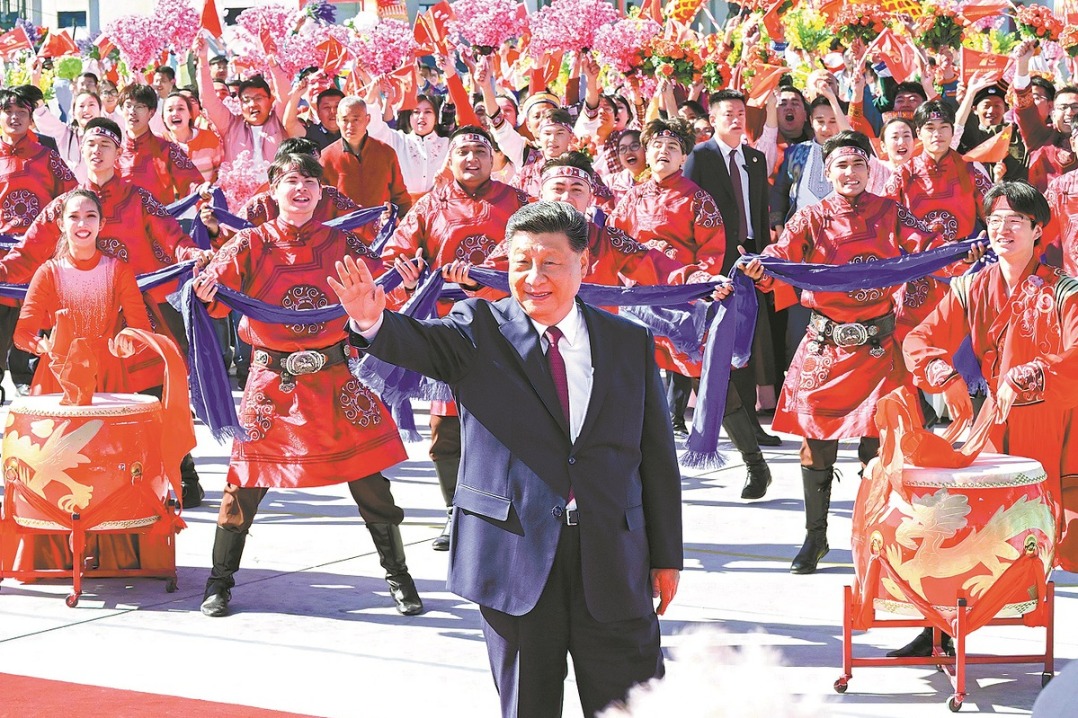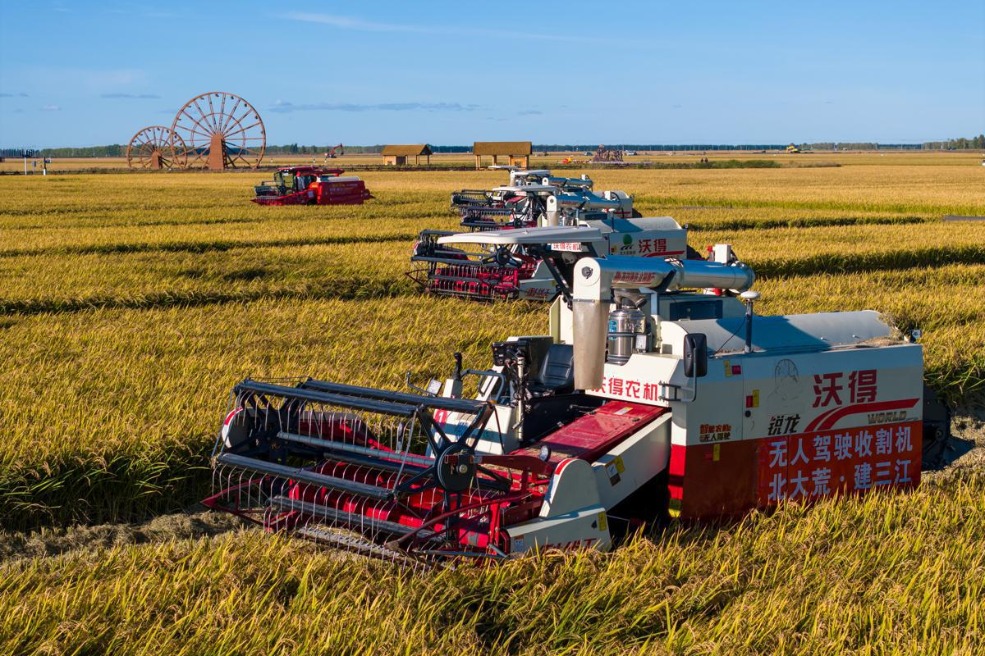New guideline aids domestic, foreign firms
Judicial document aims to support high-level opening-up, advance BRI

Domestic and foreign businesses will benefit from more standardized, efficient and accessible dispute resolution services under a new judicial document, officials from China's top court said.
The Supreme People's Court on Thursday released a guideline on international commercial courts and tribunals in an effort to regulate their services, promote high-quality development and ensure high-level opening-up.
The guideline, which includes 15 provisions and emphasizes advancing the Belt and Road Initiative, marks the first time the top court has systematically planned the coordinated development of its international commercial courts and local tribunals.
"Our goal is to help foster a first-class business environment that is stable, fair, transparent and predictable, adhering to market-oriented, rule-of-law and international standards, thereby positioning China as a preferred venue for resolving international commercial disputes," said Wang Shumei, a standing member of the court's adjudication committee.
Under the guideline, foreign business entities will be provided with standardized English versions of judicial documents and litigation procedures that are relevant while resolving disputes in Chinese international commercial courts and tribunals.
Within the legal framework, judges are also permitted to use video links to transmit evidence and witness the authorization of agents by foreign parties to improve efficiency, the guideline said.
It also encourages the use of advanced technologies such as big data and artificial intelligence to build a cross-border service database and assist in identifying foreign laws.
Additionally, Wang said the court will amend judicial interpretations of the Civil Procedure Law and the Arbitration Law at an appropriate time to strengthen protections for cross-border transaction disputes and support the development of arbitration.
"We'll also increase exchanges and cooperation with overseas colleges and international organizations to cultivate talent proficient in foreign-related legal practices and international rules," she said.
The top court established its first and second international commercial courts in Shenzhen, Guangdong province, and Xi'an, Shaanxi province, in 2018. In 2020, tribunals dedicated to foreign-related commercial cases were set up in 16 intermediate courts nationwide.
As of Sept 20, the two international commercial courts had heard 44 cases and concluded 37 of them. According to data released on Thursday, these cases involved parties from 21 countries and regions. Since 2020, local tribunals have dealt with 16,687 disputes and resolved more than 15,000.
Wang Haifeng, deputy chief judge of the top court's Fourth Civil Division, said the international commercial judicial institutions have played a key role in offering efficient, convenient and low-cost dispute resolution services for both domestic and foreign parties.
"These efforts have contributed to regional economic development and provided legal support for Chinese enterprises expanding abroad and for the protection of their overseas interests," he said.
On Thursday, the court also disclosed five notable cases involving the BRI that demonstrate China's judicial commitment to ensuring high-level opening-up.
caoyin@chinadaily.com.cn





































